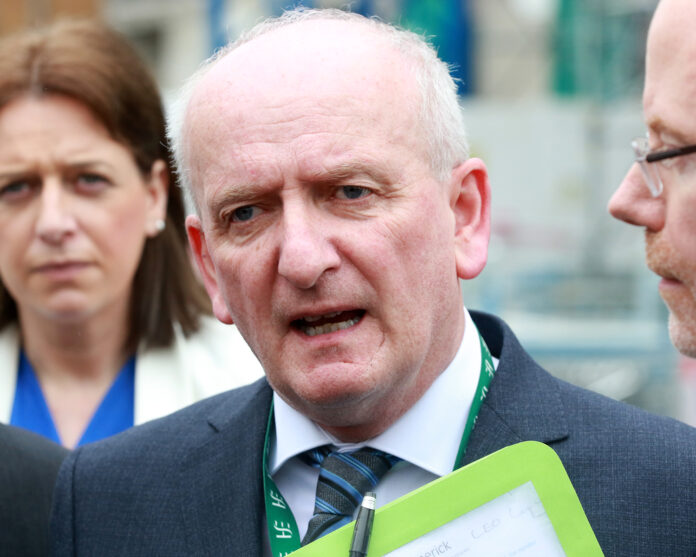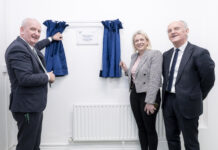
THE HEAD of the Health Service Executive has told a Dáil committee that there are “positive aspects” to care in University Hospital Limerick (UHL) and that the health authority is “determined” to solve the issues plaguing the hospital’s emergency department (ED).
CEO Bernard Gloster was presenting a report on the overall finances of the HSE to the Dáil Public Accounts Committee this past Thursday (October 24) and singled out the issues in Limerick in his opening address.
He also confirmed that the HSE is looking at opening the medical assessment units (MAU) in the Mid West region 24/7 so that GPs can refer patients there rather than sending them to the chronically overcrowded UHL ED.
Mr Gloster told the committee that he is “very conscious of the significant and ongoing commentary in respect of University Hospital Limerick, and the overall provision of emergency care in the Mid West region.
“I have been clear in my public statements on the issues of capacity, pace of reform, process, best use of resources, and the important issue of errors and failures. Where warranted, I have been unequivocal in some of the more difficult issues there,” he said.
“However, again, I stress that there are many positive aspects and strengths to the services in UHL.”
He said the HSE is “absolutely determined to overcome the challenges that are experienced there, particularly at the point of emergency access to service”.
He said a strong programme board under the direction of the regional executive officer Sandra Broderick is now in place.
He said that the coming months will see more growth in beds and staff at UHL, and capacity will “continue to be expanded and we will await and work with government on the outcome of the HIQA review of emergency department capacity in the region”.
Labour TD Alan Kelly said he is “begging” the HSE to engage in a public campaign in the Mid West about the services that are available and how people should attend.
“In some cases, they are not attending. I have said publicly I had to get my (elderly) father to attend (at UHL ED). The MAUs have vacancies in the evenings and at weekends. That would stop people from ending up in accident and emergency departments. People have to and should attend, as bad as the narrative and the situation is”.
Mid West regional executive officer Sandra Broderick, who also attended the meeting, agreed that such a campaign is needed.
She said that UHL provides “outstanding care once you get past that overcrowded emergency department”.
“I am concerned that people are delaying coming to the emergency department. We have a wonderful patient advocate who is working with us. We have been out and doing media interviews together. We have been encouraging people to come to the emergency department. They will be seen, they will be treated, and they will looked after.”
HSE boss Bernard Gloster said that “part of the narrative problem since Christmas is what people choose to take out of what we are saying. I have done many radio interviews talking about very difficult subject matters in Limerick and all of the time underpinning that by the fact that it is my local hospital, that is where I go – and if people need emergency care, they should go there and they will be cared for.”
Mr Gloster added that the opening hours of the Mid West MAUs “will first move to midnight. Depending on the success of getting the GP community, doctors, and staff to use the uptake on that, we are happy to go beyond that, but we want to see that there is an appetite to use the service, because the worst thing we could do is have an open service not working.”








